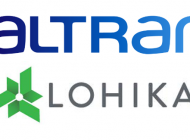The software development outsourcing industry in Macedonia has emerged as one of the most dynamic sectors of the economy in the past decade. With a growth rate of 38% in 2008, it has become an engine of growth, innovation and competitiveness. Due to the massive impact of the economic crisis, 2009 and 2010 were not the best years for this sector.
“The most common concerns regarding the issue was, whether and how the crisis affected the demand in this sector,” says Branka Bugariska, marketing manager of Seavus, a Swedish consulting and software development company in Macedonia. “In our experience, it is evident that it did, in a positive way. Because of the need to reduce their costs, companies must work on process optimization and the need for automation such as the use of software in everyday operations shows up as a logical consequence. In other words, demand for our services and products increases,” explains Bugariska.
Just like several other countries in southeast Europe that are going through transformation, Macedonia has discovered the strategic importance of the outsourced software development industry and its enormous export potential. In the past five years, there is a growing trend among western, European and American companies to outsource application development-related tasks and activities to lower cost destinations, thereby, creating substantial market opportunities. Macedonia plays on its advantages such as lower labor costs and highly skilled human capital.
Outsourcing landscape in Macedonia: small market size
The Macedonian outsourcing industry is characterized by its small size and a very limited number of companies in comparison to the software industries of its neighboring countries such as Bulgaria or Serbia. According to the Macedonian ICT Chamber of Commerce, there are 420 active companies in the IT industry with a total of 1,885 employees.
Out of these 420 companies, only 48 companies are active in the area of software products or software-related services for outsourcing purposes. According to estimates by the ICT Chamber of Commerce, the average size of Macedonian software development outsourcing companies range between 10 to 20 employees. The very first companies were founded in the early 1990s. The average age of the software enterprises is 12 years while the oldest company is 20 years old. Three largest Macedonian companies have 520 employees put together.
An average annual turnover of 1.2 million Euro per company in 2008, also suggests, that companies have only very limited financial resources to export their services which typically requires substantial budgets.
The highest paid profession in Macedonia, according to the National Statistics Agency, is that of a senior software developer, with an average net monthly salary of 1,050 Euros.
Foreign capital is making an impact on both Macedonia and the region. In the past five years, the biggest foreign direct investments in the ICT sector in Macedonia were in the telecommunications sector with 87% of the total FDI in the country. In comparison, only 4.5% of the total FDI belong to the software development outsourcing sector.
Government efforts to boost the software development industry
In order to improve the development of the IT sector in Macedonia, the government had initiated a number of programs in the past few years. It introduced the program “Computer for Every Student,” which brings computers to elementary schools as well as free training for desktop and mobile application development and basic IT trainings for the unemployed. There are also scholarships available for the best IT students in the universities.
To boost the software development industry, the government has developed an FDI program. This includes flat corporate and personal income tax rate of 10% for foreign entities. It also gives them the right to buy or lease land. Additionally, foreign investors can be completely exempt from paying income tax for a period of ten years if they invest in technology and industry development zones.
A small country like Macedonia, which has just over 2 million inhabitants can benefit from the growth of the software development outsourcing industry. It will help build the economy and a reputation in technical excellence which will eventually spill over into the technology sector. Who knows, maybe in the near future, Macedonia, will too, become a birth place for technology ventures, just how Estonia has become with the help of Skype.











